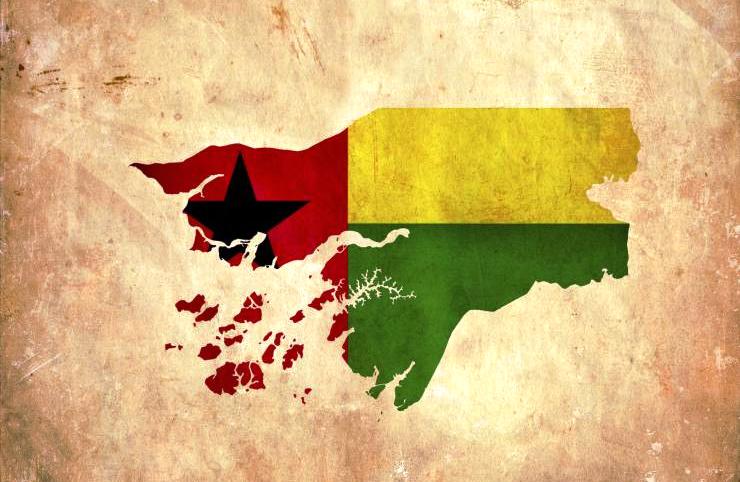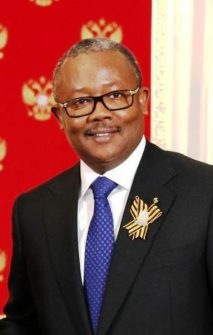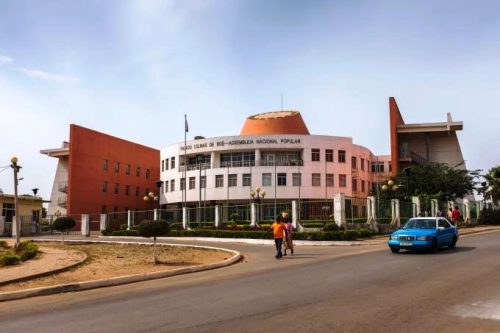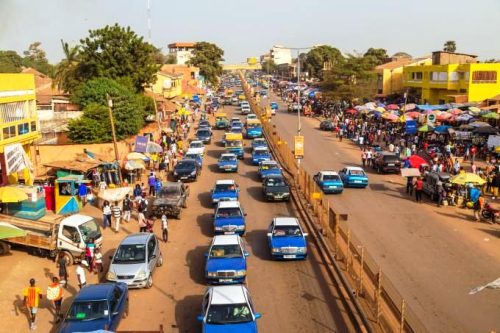Guinea Bissau. Democracy can wait.

President Sissoco Embaló does not tolerate dissonant voices and continues to present himself as an authoritarian normalizer of political life. However, he does not control parliament and a second presidential term is not certain.
Since before gaining independence, Guinea-Bissau has been the scene of personalistic disputes and individual ambitions. The assassination of Amílcar Cabral, the historic leader who had led the independence process of Guinea-Bissau and Cape Verde, which occurred a few months before the proclamation of unilateral independence from Portugal (1973), marked the history of the western African country.

Umaro Mokhtar Sissoco Embaló, president of Guinea-Bissau since February 2020. CC BY 4.0/ Kremlin.ru
No longer having a leader, Guinea-Bissau has lost itself between coups d’état – the first, in 1980, by Nino Vieira, against the then president, Luís Cabral -, drug trafficking (so much to transform the small nation into the first narco -African state) and widespread poverty. It is possible to say that there has never been a prolonged period of institutional tranquillity in Guinea-Bissau. The country went from one transition to another, without interruption, until reaching the last presidential experience, that of Sissoco Embaló.
Weak institutions
Embaló is a military man, specializing in international relations and defence policy, who conceives politics as a game with only two categories: winners and losers. He was a collaborator of several African leaders, including Gaddafi, and is accused of winking at Islamic extremism, even though his wife is Catholic. With presidential ambitions, Embaló had carried out a presidential campaign – which then led him to a disputed second-round election in 2020 – with typically populist tones and themes: the death penalty for drug traffickers and bandits, prison for those who beg for a piece of bread in the streets and systematic denigration of the PAIGC (African Party for the Independence of Guinea and Cape Verde) treated like a cancer to be got rid of.

View of the National People’s Assembly (Assembleia Nacional Popular) in the city of Bissau. Shutterstock/ TLF Images
Friend of then Brazilian President Bolsonaro and advocate of a more aggressive foreign policy than his predecessors, Sissoco is demonstrating a total absence of democratic culture. Human rights are violated, there is a strong limitation of freedom of expression and of the press, and of the rights of association and demonstration, as Freedom House itself (a Washington-based NGO that monitors human rights) confirmed in its recent report. However, to understand the series of alleged coups d’état, shootings and various conflicts that have taken place in recent months, also deserving the attention of the UN Secretary General, Guterres, it is necessary to frame everything in a more general context, typical of the political action of several African presidents.
Power first of all
Embaló’s main objective is to stay in power for as long as possible. He is convinced that he must complete a mission, bring order to the country, preventing the “cancer” of the PAIGC from returning to guide him. In this way, all the tools to avoid the political risk of losing one’s power are good. Firstly, the postponement of the elections, as happened with the legislative elections which were held on 4 June 2023, almost a year late. And which sanctioned the return of the PAIGC to an absolute majority in parliament. Secondly, the sabotage of his opponents, which, however, he has had to live with since last June. The fact that the government led by Geraldo Martins – whom Sissocó himself had appointed, in agreement with the presidency of the PAIGC – was dissolved in a rather unexpected manner, to create a presidential-initiated executive demonstrates that Sissocó is trying to divide his opponents, currently favourites for this year’s presidential elections. Finally, the latest tactic used by the president is the dissolution of parliament, with very weak justification and outside the constitutional provisions.

Street scene in the city of Bissau. Embaló’s main objective is to stay in power for as long as possible.123rf
He did so in May 2022, announcing elections for December, which were then postponed until June of the following year; and he did it again in early December 2023. In short, the strategy to maintain power now seems consolidated: to limit dissonant voices as much as possible (including parliament, but also the press, in addition to the parties that oppose him), and propose himself as the “lone man in command”, the sole normaliser of political life.
Vote 2024
This personalistic and authoritarian plan is causing, however, the opposite effect: great institutional instability, planned and practised by Embaló himself, a country in disaster, and yet another transition in sight, that of the presidential elections. A very delicate step that Embaló will probably try to avoid and postpone as much as possible, as he has always done during his mandate, to prolong his presidential experience. Given the next elections, we can expect just anything from the president in office, given his anxiety about completing the “mission”. (Map of Guinea Bissau on grunge paper. 123rf)
Luca Bussotti



